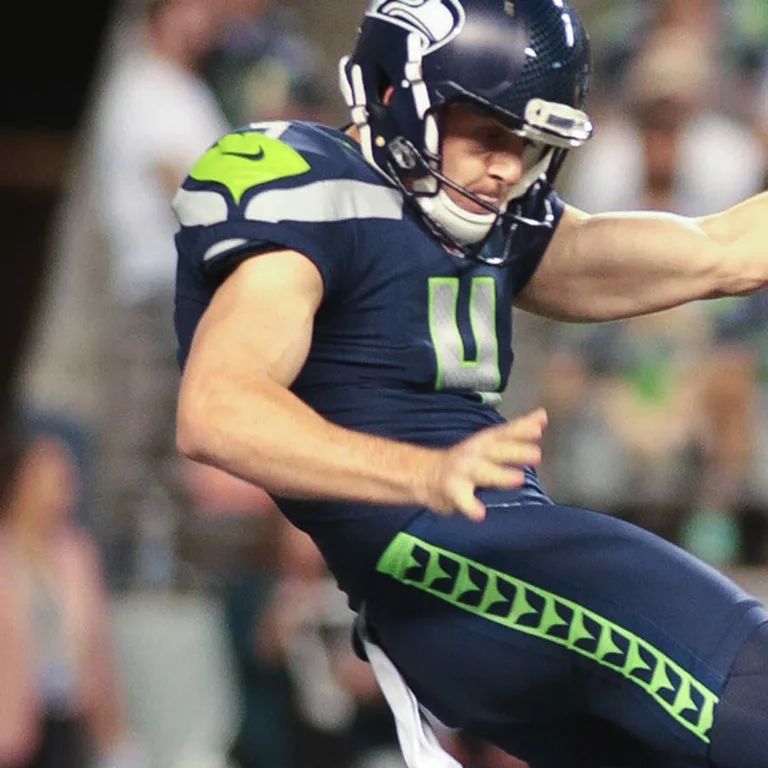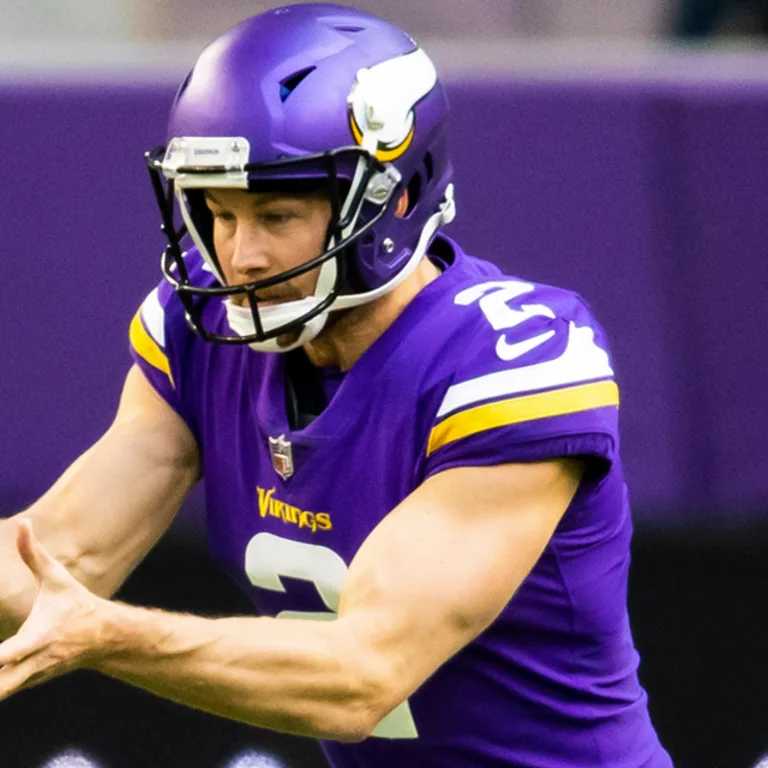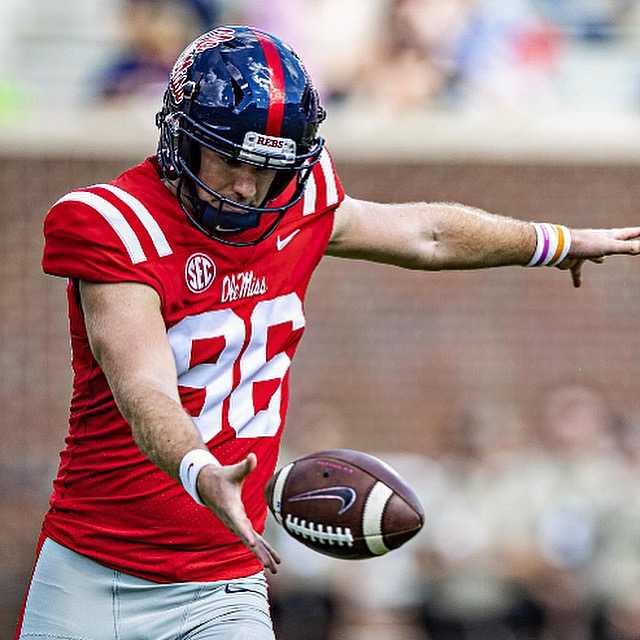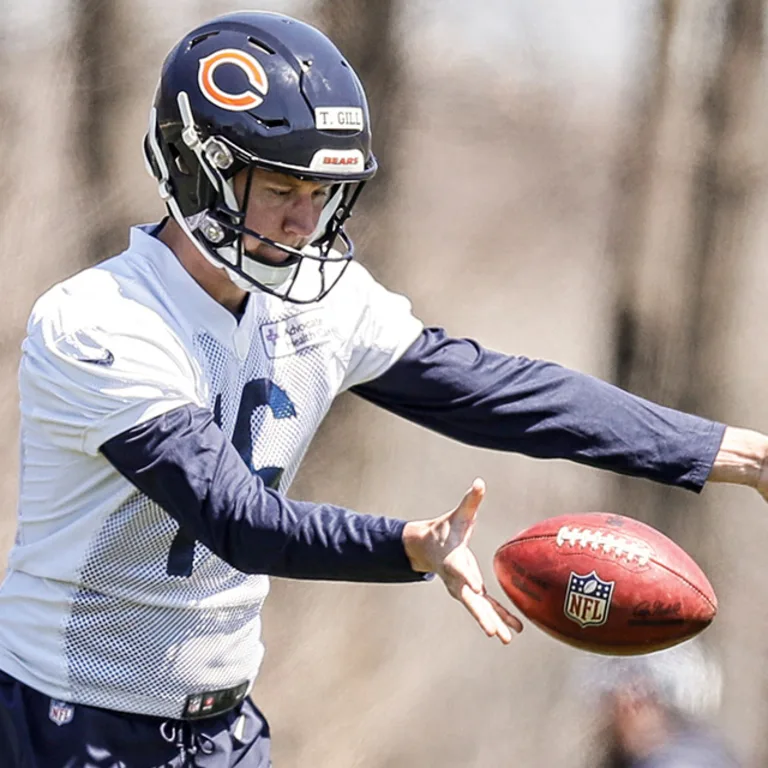In the game of American football, every player on the team has a specific role and set of responsibilities. While some positions may receive more attention and recognition, there are players who play crucial roles in the team’s success, even if they often go unnoticed. One such position is that of a punter.
II. The Responsibilities of a Punter
A. Punting Technique and Execution
The primary responsibility of a punter is to execute a successful punt. Punting is the act of kicking the football as far as possible to flip the field position in favor of the punter’s team. This requires a combination of proper technique, timing, and power. A punter must have excellent leg strength and accuracy to consistently deliver long, high punts.
B. Directional Punting
Another important aspect of a punter’s responsibility is directional punting. While distance is important, placement can play an even more significant role in determining the success of a punt. By intentionally kicking the ball towards the sideline, a punter can pin the opposing team deep in their own territory. This restricts the return options for the opposing team and increases the chances of the defense making a stop.
C. Punting as a Weapon
A skilled punter can use their abilities as a weapon in the game. By executing well-placed punts, the punter can force the opposing offense to start their drives from unfavorable field positions, making it more difficult for them to score. Additionally, a punt that results in a touchback eliminates any chance of a return opportunity, effectively flipping the field and giving their own team a better chance at success.
III. Importance of a Skilled Punter in a Team
A. Field Position Advantage
Field position is a critical aspect of football. It determines where an offense starts their drive and can greatly impact the team’s ability to score. A skilled punter can contribute significantly to securing a field position advantage for their team. By consistently delivering long, high punts, the punter forces the opposing offense to start their drives deep in their own territory. This gives the defense a shorter distance to defend and increases the likelihood of a defensive stop or turnover.
Furthermore, a punter who can execute precise directional punts can pin the opposing team even deeper in their own territory, making it even more challenging for them to move the ball effectively. For example, if the punter lands the ball near the opponent’s goal line or out of bounds near the sideline, the opposing team’s offensive options become limited, putting immense pressure on their offense to gain yards and maintain possession.
B. Flipping the Field
The ability to flip the field position is a game-changing skill possessed by a skilled punter. Flipping the field means changing the starting field position to favor the punter’s team. A well-executed punt that results in the opposing team starting their drive deep in their own territory can completely change the momentum of a game. It not only takes away the opponent’s ability to gain easy yards but also forces them to play conservative and make low-risk decisions, such as running the ball instead of attempting long passes.
By flipping the field, the punter sets up their team for success. It gives the offense a shorter field to work with, increasing their chances of scoring points. Conversely, it burdens the opposing offense with a longer distance to cover, making it more difficult for them to sustain a drive and score. This strategic advantage can be a game-changer in high-stakes situations.
C. Impact on Defensive Strategy
A skilled punter can have a profound impact on the defensive strategy of their team. By consistently pinning the opposing team deep in their own territory, the punter allows the defense to be more aggressive and take calculated risks. The defense can blitz more frequently, apply more pressure to the quarterback, and take chances on intercepting passes. These tactics become more viable when the opposing offense has limited field to work with, as it minimizes the potential for big offensive plays.
Additionally, the punter’s ability to execute well-placed directional punts can force the opposing team to adjust their offensive game plan. If the punter repeatedly pins the opponent near the sideline, the offense may be inclined to run the ball more often, reducing their passing options. This forces the opposing team to become more predictable, making it easier for the defense to anticipate and counter their plays.
IV. Training and Skills Required for a Punter
A. Leg Strength and Accuracy
One of the most important skills for a punter is having strong leg strength and accuracy. Punters must be able to generate enough power to deliver long, high punts, while also maintaining accuracy to consistently hit their target. To develop leg strength, punters engage in various exercises such as weightlifting, plyometrics, and specific leg drills. Likewise, they work on their accuracy through repetitive practice and fine-tuning their technique.
B. Understanding Wind and Weather Conditions
Punters are also required to have a good understanding of wind and weather conditions. Wind can greatly affect the trajectory and distance of a punt, making it essential for punters to be able to gauge the wind’s direction and intensity. By understanding these factors, punters can adjust their technique and alignment to maximize the effect of the wind or minimize its impact on their kicks.
C. Ability to Read the Opposition
A skilled punter has the ability to read the opposition and make strategic decisions accordingly. By studying the opposing team’s punt return formation, the punter can determine whether to execute a booming, high punt or a shorter, more directional kick. This decision-making is crucial in limiting the returner’s opportunities and maximizing field position advantage.
V. Punter’s Role on Special Teams
A. Working with the Long Snapper and Holder
One critical aspect of a punter’s role is their coordination with the long snapper and holder on special teams. A successful punt requires precise timing and execution between these three players. The punter relies on the long snapper to deliver a fast and accurate snap, allowing them enough time to catch the ball and execute the punt. The holder’s role is equally important, as they must catch the snap cleanly and set up the ball in the perfect position for the punter to kick. These three players must spend countless hours together in practice, developing the necessary chemistry and trust to ensure a seamless execution on game day.
B. Last Line of Defense on Returns
In addition to their punting responsibilities, punters also play a vital role in the last line of defense on returns. After kicking the ball, the punter must immediately transition into a defender and be ready to tackle the return man if necessary. Many times, the punter is the final barrier between the returner and a potential touchdown. Punters must possess adequate tackling skills and be fearless in their pursuit to make a tackle. Their ability to make open-field tackles can greatly impact the outcome of a return and potentially save the team from surrendering a touchdown.
C. Effective Communication with the Coaching Staff
Lastly, punters must have effective communication with the coaching staff to ensure optimal game strategy and execution. They need to be in sync with the coaches’ game plan and understand the specific goals and expectations for each punt. Punters should maintain open lines of communication, discussing strategies and adjustments with their special teams coach. This collaboration ensures that the punter is well-prepared and understands his role in the overall team strategy.
In conclusion, punters possess a unique set of skills that are essential to the success of a football team. From developing leg strength and accuracy to understanding wind and weather conditions, punters invest countless hours in training to perfect their craft. Additionally, their role on special teams, working with the long snapper and holder, providing the last line of defense on returns, and effective communication with the coaching staff, further highlight the importance of a skilled punter in the overall team dynamics.



